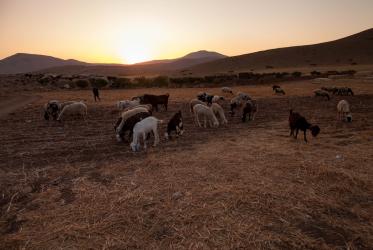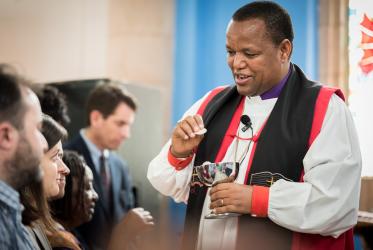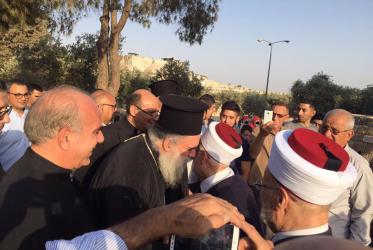Displaying 121 - 140 of 381
WCC joins call for prayer for peace on Korean Peninsula
23 April 2018
Arusha offers vibrant and colourful worship life
12 March 2018
Ecumenical accompaniers share observations with EU
11 February 2018
Churches call for urgent action for Cremisan Valley
28 September 2017
Pentecost is time to pray for unity and just peace
05 June 2017
G7 must address famine
22 May 2017











